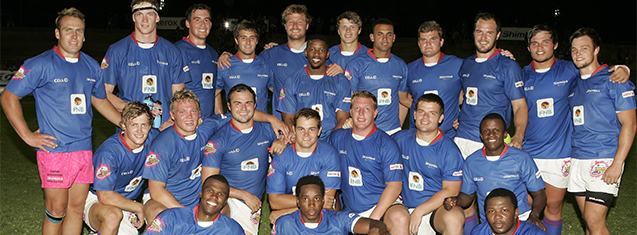
Even the persistent Pukke from North-West University (NWU) fell short by losing 29-26 on Monday 23 March against the UFS Shimlas in this year’s Varsity Cup rugby tournament.
This means Shimlas have their first ever home semifinal and, for the first time, they are also the only unbeaten side in the tournament. Come Monday 30 March, the men from Kovsies will host the University of Cape Town Ikeys for the first semifinal clash of the day at 16:45 at Shimla Park on the UFS Bloemfontein Campus.
Despite the loss, Pukke did manage to secure a bonus point by scoring four tries. It was only the good kicking to the posts by Shimlas captain AJ Coertzen that made the three-point victory difference on the final score. Pukke ended fourth on the Varsity Cup log, earning them a position in the semifinal as well. The men from NWU will travel next to the University of Pretoria to face the top of the log Tuks side in the second semifinal clash.
In the Shimlas match against Pukke, UFS flank Gerhard Olivier managed to be dubbed the Player that Rocks for a second time now this season.
Shimlas point scorers against Pukke:
Tries: Elandre Huggett, Niell Jordaan, Gerhard Olivier (2)
Conversion kicks: AJ Coertzen (3)